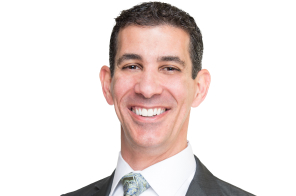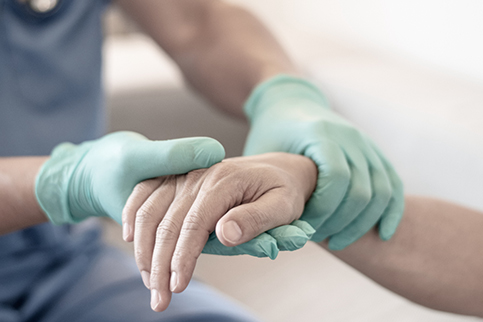For many people, the thought of seeking in-person healthcare during a pandemic provokes anxiety. You might flash back to the spring of 2020, when media coverage focused on exhausted providers, chaotic emergency departments (EDs), and shortages of masks and protective equipment. And your fears might be heightened by the recent uptick in COVID-19 cases.
While this anxiety is understandable, as an emergency physician, I’m here to make a plea. Please seek care if you need it—don’t delay. Why do I feel so strongly about this? Because we’ve learned a lot this year about the dangers of putting off both emergent and routine doctor visits.
Recently, a patient presented with weakness of their arm and leg and a bit of speech difficulty for three days before presenting to the ED. Unfortunately, the CT scan showed they had sustained a stroke, and the real tragedy is had they presented immediately after their symptom’s onset, they would have been a candidate for “clot busting” medication, reversing their symptoms. Instead, they now have lifelong partial paralysis of their arm and leg.
A CDC survey found that 41% of U.S. adults avoided medical care this year due to COVID-19 concerns—and 12% delayed urgent or emergency care. ED visits declined by 42% in early 2020 when shelter-in-place orders went into effect. An even worse decline (70%) occurred among pediatric visits, which could have implications for children’s long-term health.
“Please seek care if you need it—don’t delay. We’ve learned a lot this year about the dangers of putting off both emergent and routine doctor visits.”
Theo Koury, MD
This decline wasn’t just a matter of having fewer motorists on the road or sick people in the office. Vituity’s emergency medicine practices also saw a 36% drop in emergent diagnoses like stroke and heart attack. Because a pandemic does not prevent blocked arteries (and might even exacerbate them), we realized that our patients must be “waiting out” painful and frightening symptoms at home.
In many cases, this strategy backfired. During the same period, more patients arrived at the ED in ventricular fibrillation leading to cardiac arrest. Most likely, these were heart attack patients who waited too long for help. And they weren’t alone. As summer approached and hospitals emptied of COVID-19 cases, many refilled with the complications of delayed care.
So, what does this mean for you and your loved ones? Here’s what my colleagues and I want you to know: Contrary to popular belief, the hospital is actually one of the safest places for you. We’re taking every precaution to safely care for you and your friends, neighbors, and community. We’ve had a lot of time to prepare for the latest COVID-19 surge.
We must learn from those who gambled with their health and lost. Medical emergencies are still happening during COVID-19, preexisting conditions are not going away, and routine screenings for conditions like cancer shouldn’t be delayed. Delaying care causes worse health outcomes—from dying at home of a heart attack or stroke to dangerous complications of diabetes, heart disease, and cancer. Even minor illnesses like ear and bladder infections can become serious if neglected too long in high-risk patients.
If you or a loved one is experiencing a chronic or acute healthcare condition, please don’t wait to seek care. Your health is top priority for me, my medical colleagues, and our hospitals and health systems. Wherever and whenever you need us, we’re ready for you.























